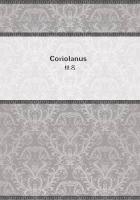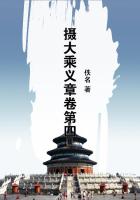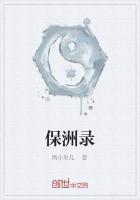They say--you'll excuse me, signorina--that when they quarrel, your compatriots don't show each other very much mercy. Then the poor old gentleman, being left all alone, came over to Pisa, to a distant relation of his, who owns this farm. Between his misfortunes and his sorrow, the good man is a little cracked. . . . The lady found him troublesome--for she sees a great deal of company. So she sent him out here. He's very gentle--no worry at all. He doesn't speak three words the whole day long. In fact, his brain's quite gone. The doctor comes to see him every week. He says he won't live long."
"There's no hope for him, then!" said Colomba. "In such a case, death will be a mercy."
"You might say a word to him in Corsican, signorina. Perhaps it would cheer him up to hear the speech of his own country."
"I'll see!" said Colomba, and her smile was mysterious.
She drew nearer to the old man, till her shadow fell across his chair.
Then the poor idiot lifted his head and stared at Colomba, while she looked at him, smiling still. After a moment, the old man passed his hand across his forehead, and closed his eyes, as though he would have shut out the sight of Colomba. He opened them again, desperately wide this time. His lips began to work, he tried to stretch out his hands, but, fascinated by Colomba's glance, he sat, nailed, as it were, to his chair, unable to move or utter a word. At last great tears dropped from his eyes, and a few sobs escaped from his heaving chest.
" 'Tis the first time I've seen him like this," said the good woman.
"This signorina belongs to your own country; she has come to see you," said she to the old man.
"Mercy!" he cried in a hoarse voice. "Mercy! Are you not content? The leaf I burned. How did you read it? But why did you take them both?
Orlanduccio! You can't have read anything against him! You should have left me one, only one! Orlanduccio--you didn't read /his/ name!"
"I had to have them both!" answered Colomba, speaking low and in the Corsican dialect. "The branches are topped off! If the stem had not been rotten, I would have torn it up! Come! make no moan. You will not suffer long! /I/ suffered for two years!"
The old man cried out, and then his head dropped on his breast.
Colomba turned her back on him, and went slowly into the house, humming some meaningless lines out of a /ballata/:
"I must have the hand that fired, the eye that aimed, the heart that planned."
While the farmer's wife ran to attend on the old man, Colomba, with blazing eyes and brilliant cheeks, sat down to luncheon opposite the colonel.
"What's the matter with you?" he said. "You look just as you did that day at Pietranera, when they fired at us while we were at dinner."
"Old Corsican memories had come back to me. But all that's done with.
I shall be godmother, sha'n't I? Oh! what fine names I'll give him!
Ghilfuccio--Tomaso--Orso--Leone!"
The farmer's wife came back into the room.
"Well?" inquired Colomba, with the most perfect composure. "Is he dead, or had he only fainted?"
"It was nothing, signorina. But it's curious what an effect the sight of you had on him."
"And the doctor says he won't last long?"
"Not two months, very likely."
"He'll be no great loss!" remarked Colomba.
"What the devil are you talking about?" inquired the colonel.
"About an idiot from my own country, who is boarded out here. I'll send from time to time to find out how he is. Why, Colonel Nevil, aren't you going to leave any strawberries for Lydia and my brother?"
When Colomba left the farm-house and got into the carriage, the farmer's wife looked after her for a while. Then, turning to her daughter:
"Dost see that pretty young lady yonder?" she said. "Well, I'm certain she has the evil eye!"















